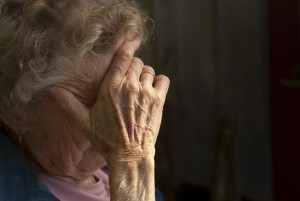
By Sarah Mac Donald - 05 September, 2016

Social Justice Ireland has urged the Government to start planning and investing in services and infrastructure for the country’s changing demographics which will see be nearly 1 million people aged 65 and over by 2031.
Speaking at the launch of Social Justice Ireland’s National Social Monitor 2016, Dr Seán Healy, director of SJI said, “This level of population ageing will be associated with higher levels of disability and long-term ill-health and now is the time for planning and investment.”
SJI Research and Policy Analyst, Michelle Murphy, warned that Social Justice Ireland is “seriously concerned that adequate funding is not being provided to address the ageing of the population that will result in a steady increase in older people and people with disabilities accessing services.”
She added, “With an ageing population, the acute hospital system will be unable to operate effectively unless there is a greater shift towards primary and community services as a principal means of meeting patient needs.”
Dr Healy highlighted that “There has been a 17 percent reduction in the number of home help hours delivered since 2008. This has left families struggling to cover the gaps in care for their elderly relatives.”
According to Michelle Murphy “A commitment to supporting people at home is only aspirational if funding is not provided for home help services, day care centres and home care packages. These are the very areas which must be the subject of investment to address population ageing.”
Dr Healy said that the demographic changes SJI were highlighting also have major implications for lifelong learning and employment – other areas which are addressed in the monitor.
A further issue covered in the monitor is environment and sustainability. This is another area where Ireland faces challenges.
The immediate challenge for Irish climate policy is to meet the EU 2020 targets for the domestic sector. This will require major changes by Government if these targets are to be met.
Climate policy must be integrated into transport policy and agriculture policy. Ireland needs to develop and promote sustainable transport and agriculture practices to reduce Ireland’s emissions.
Other issues highlighted in the monitor include the need to fully resource the National Skills Strategy, to resource the up-skilling of those who are unemployed, in particular the long-term unemployed and the need to frontload investment in rural broadband.
Separately, in its pre-budget submission for 2017, the charity ALONE has called for an increase in home help hours to meet the needs of Ireland’s ageing demographic.
ALONE is calling on the government to increase home help hours in line with demand to ensure that older people are supported to age in the community. The number of home help hours has been cut by 1.58 million since 2010. In that time, the number of older people in the state has increased by 18%.
Sean Moynihan, CEO of ALONE said, “Repeated studies have demonstrated that ageing at home is the first choice of older people and their families. Numerous government policies have subscribed to this principle, not least the National Positive Ageing Strategy.
“Home help hours are a much more cost effective and person-centred way of supporting people with medium support needs to age at home rather than moving them into the nursing home system.”
He said that nursing homes play a key role in the care of the very old with high support needs.
However, with Ireland’s older population is set to reach 1.4million over the next 30 years, the state’s statutory obligation to provide long-term residential care must be extended to community care.
In its pre-budget submission, ALONE is also calling for an increase the rent supplement as they believe that homeless older people present the next housing crisis.
In the last 6 months in particular ALONE has seen a dramatic increase in the number of homeless older people coming to them for help; a large portion of them having been evicted from private rented accommodation.
The increased demand for private rented accommodation has led to soaring rents, making the rent supplement increasingly inadequate. As a result, older people are being pushed out of the market into homeless services.
For those with concerns about their own wellbeing, or the wellbeing of a vulnerable older person in the community, ALONE can be contacted on (01) 679 1032 or visit www.alone.ie